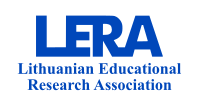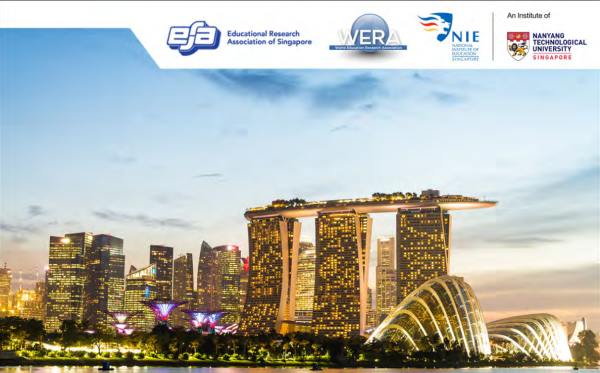
In conjunction with a WERA association, Educational Research Association of Singapore (ERAS), WERA is planning the 2023 annual focal meeting “Forging Ahead: Transforming Education in a Rapidly Changing World”.
We are excited to share with you the following important information:
- 21 November 2022: Call for proposals. Deadline 1st of February, 2023.
- 21 November 2023: Pre-Conference Workshops.
- 22 – 24 November 2023: National Institute of Education (NIE); Nanyang Technology University (NTU), Singapore
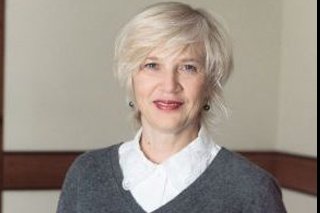
The LERA community warmly congratulates LERA Board Member prof. dr. Lilija Duoblienė on becoming the winner of the 2022 Meilė Lukšienė Prize for Scientists. We wish her inexhaustible creative energy, health, joy and to keep delighting us with great discoveries for a long time.
The 2022 Meilė Lukšienė Prize has been awarded to prof. habil. dr. Jūrata Baranova (posthumously) and prof. dr. Lilija Duoblienė for the series of papers “Philosophy of Education for Lithuania: Promoting Cultural Literacy and Philosophy in Schools (2014-2022)” (presented by Vilnius University).
The results of the authors’ eight years of research are rich: four monographs (some of them published by prestigious foreign publishers), a joint educational book for teachers, joint scientific publications in international scientific journals, and individual scientific publications in international collective monographs (more than thirty articles). Both theoretical works and publications are oriented towards practical application, integrated around a common theme, where philosophy, culture, art, education and school are integrally intertwined.
The series of works contributes significantly to the strengthening of the foundations of the humanities in Lithuanian schools and is in harmony with the humanistic education fostered by Meilė Lukšienė. The series of works by prof. habil. dr. J. Baranova and prof. dr. L. Duoblienė is original and innovative, highly complex, and has an important applied character. A system of multimodal education and philosophical teaching methods has been developed, and textbooks and teaching aids on ethics and philosophy have been developed and are widely used in the Lithuanian education system.
The authors’ works remain fundamental for the development of philosophical awareness and reflection on cultural phenomena among Lithuanian students. It should be noted that the results of the research and their discussion go beyond the boundaries of the national scientific community and have been widely presented in international publications, which undoubtedly indicates their exceptionally high scientific level.
The research presented by professors Baranova and Duobliene is like a response to Meilė Lukšienė’s ideas. Unfortunately, the COVID – 19 cut short the life thread of Prof. habil. dr. Jūratė Baranova. It is to be welcomed that prof. Lilija Duoblienė and her colleagues are continuing research in this field.
For more information : https://www.lma.lt/news/1792/38/Skirta-2022-m-Meiles-Luksienes-premija
https://smsm.lrv.lt/lt/naujienos/isrinktos-2022-m-meiles-luksienes-premijos-mokslininkams-laureates
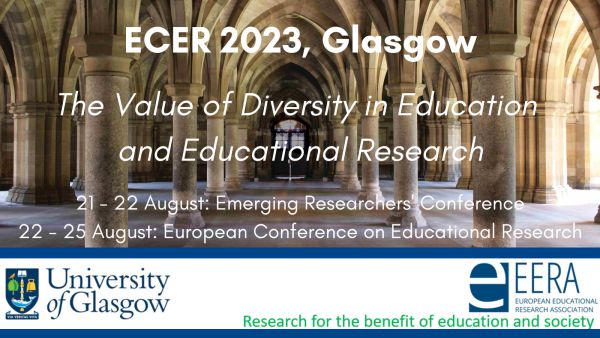
We are kindly invite you to submit applications for the ECER 2023 conference “The Value of Diversity in Education and Educational Research”, which will be held in Glasgow on 21-26 th of August, 2023.
21 – 22 August 2023 – Emerging Researchers’ Conference, ERC
22 – 25 August 2023 – European Conference on Educational Research, ECER
Deadline: 31 January 2023
For more information : https://eera-ecer.de/ecer-2023-glasgow/ecer-2023-call-for-proposals-network-calls/
This conference aims to address the many different forms of diversity in educational research, be they conceptual, contextual or methodological, and explore the creation of a wide range of practices within and between each. Ultimately it seeks to highlight the successes and challenges resulting from the commitment of educational researchers and educational research to address and include diversity in all aspects of what we do. How does educational research contribute to unpacking challenges that are brought about by the increasing visibility of different forms of diversity? How does it account for different approaches, methods and outcomes that have been developed in educational contexts around the globe, and provide insights to elaborate inclusive educational policy measures?
We look forward to receiving submissions addressing this crucially important topic from across the entire Lithuania.
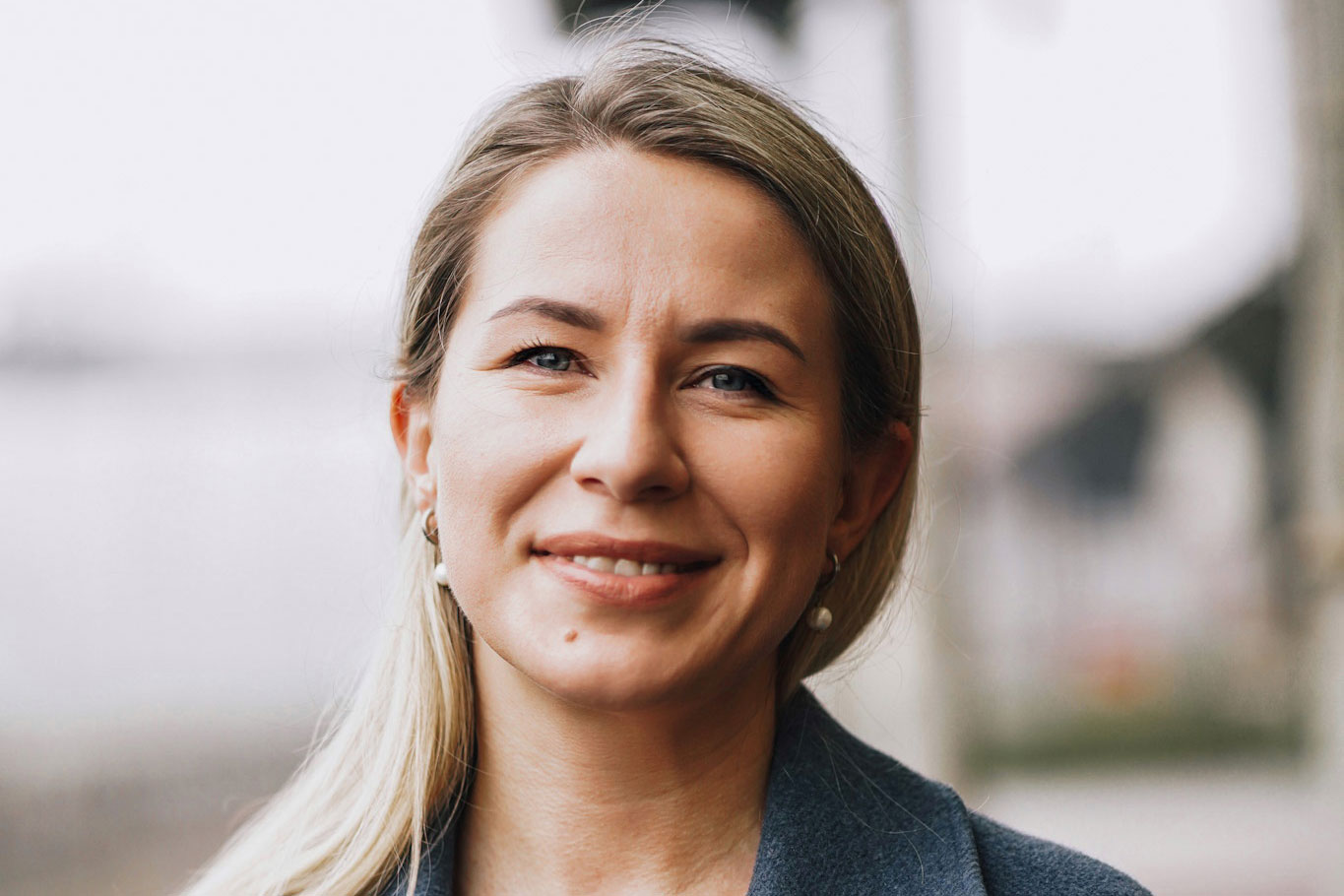
Congratulations to the new PhD Ingrida Mereckaitė on successfully defending her dissertation “Developing Lithuanian Language and Other Subjects Competences in Primary Education Using Integrated Education Models” (Educational Science (S 007), scientific supervisor prof. dr. Daiva Jakavonytė-Staškuvienė)” and obtaining PhD degree of Social Sciences in the field of Education.
The dissertation is available at Vytautas Magnus University and Martynas Mažvydas National Library. The dissertation is available at 11 Studentų St. , Academy, Kaunas district.
The brief annotation is presented below.
The PhD thesis “Developing Lithuanian Language and Other Subjects Competences in Primary Education Using Integrated Education Models” brings together a visible shift in language education policy that emphasises multiculturalism in all educational contexts. Language skills are essential, foundational and often crucial to the success of further learning. For this reason, the importance of developing linguistic competence as a foundational skill is crucial in the primary grades, when every child develops the foundations of language learning in a variety of subjects. In the course of the activity study, it was found that knowledge is constructed in a fragmented or superficial way, where the child can repeat a word but does not understand its meaning or use it in a specific activity. In addition, the lack of verbal interaction prevents pupils from participating actively in educational activities. The research on integrated language education has identified the possibilities of adapting integration models to the authentic context and environment of the learners.
Dissertation Defense Council:
Chair– prof. dr. Lina Kaminskienė, Social Sciences, Education S 007, Vytautas Magnus University
Assoc. prof.dr. Žydronė Kolevinskienė, Social Sciences, Education S 007, Vytautas Magnus University
prof. dr. Daiva Malinauskienė, Social Sciences, Education S 007, Vilnius University, Šiauliai Academy
Assoc. prof. dr. Aldona Mazolevskienė, Social Sciences, Education S 007, Vytautas Magnus University
Prof. dr. Frederic Torterat, Social Sciences, Education S 007, University of Montpellier, France
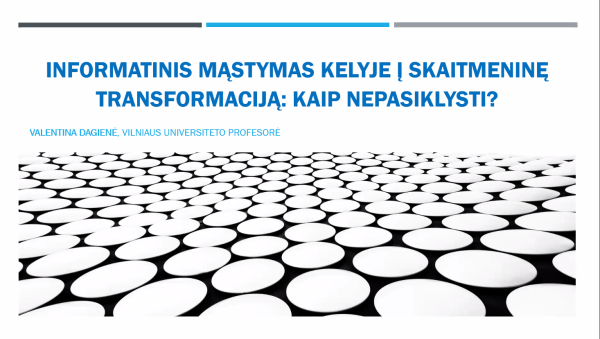
On the 24th of November in 2022, the 19th Education Forum ”“Informatic Thinking on the Road to Digital Transformation: How not to Get Lost?”. The key-note ,,Informatic Thinking on the Road to Digital Transformation: How not to Get Lost?”. was presented by prof. dr. Valentina Dagienė (Chief Researcher, Faculties of Philosophy, Mathematics and Informatics, Vilnius University).
The discussion was attended by: Indrė Šuolienė (Head of the project “Digital Transformation of Education (“EdTech”)”), Daiva Viskontienė (Director of CSC “Business Machines Company”), Mantas Vaišnoras (Project manager of CSC “Business Machines Company”), prof. dr. Airina Volungevičienė (Director of the Institute of Innovative Studies of Vytautas Magnus University), Antanas Balvočius (member of the DigComp Community of Practice (DigComp CoP) community, which is developing the European Commission’s digital competence project for the new DigCom 2.2 version), assoc. prof. dr. Haroldas Giedra (Lecturer at the Faculty of Mathematics and Informatics, VU). The conclusion was given by prof. dr. Liudmila Rupšienė (President of the Lithuanian Educational Research Association), prof. dr. Loreta Žadeikaitė (Chief Adviser of the Department of Studies, Science and Technology of the Ministry of Education,Science and Sport). The forum was moderated by doc. dr. Berita Simonaitienė (Associate Professor, Faculty of Social Sciences, Humanities and Arts, Kaunas University of Technology), dr. Vaino Brazdeikis (Director of the Department of Educational Content of the National Education Agency). The full recording of the forum can be viewed on Youtube at: https://www.youtube.com/watch?v=XYYsCZ4ykOc
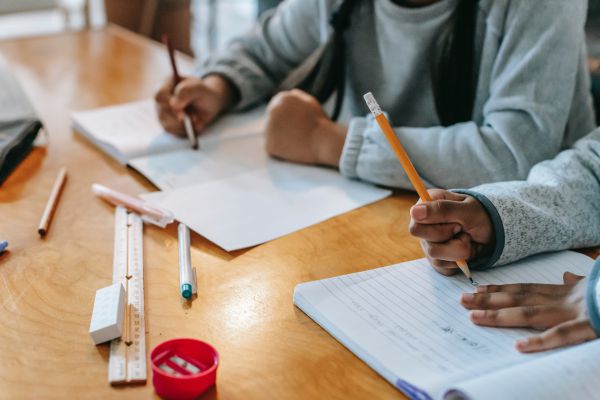
The Ministry of Education, Science and Sports, in cooperation with the Lithuanian Educational Research Association, organised the 18th Education Forum “The Future of Lithuanian General Education Schools” for representatives of educational sciences, researchers, doctoral students, heads of general education schools, and educational policy makers: What Will We Count: Do We Calculate or Imagine?”. According to the organiSers of the forum, this topic should concern everyone who is interested in changes in education policy, general education and education research.
The key-note of this forum “The Future of the Lithuanian General Education School. What Will We Count: Do We Calculate or Imagine?” presented prof. dr. Lilija Duoblienė ( professor of the Institute of Educational Sciences, Faculty of Philosophy, Vilnius University). The professor’s field of research includes educational philosophy and ideology, cultural innovations and cultural encounters in education, and her research is based on critical pedagogy, postmodern and posthumanist approaches. The researcher’s report was prepared according to the project “Futuristic Projections of the General Education School” financed by the Research Council of Lithuania.
Prof. dr. L. Duoblienė indicated several reasons why the future should be considered in general. According to her, it gives an opportunity to see alternatives, the direction of movement, allows one to tame uncertainty and gain a sense of security. Such considerations also help to recruit potentially floating ideas or imagination, plan and develop activities, and prepare for crisis management.
The insights of the research carried out by the research group crystallized into four possible scenarios of the future comprehensive school. The speaker identified them as the school of eco-care, the school of exclusions, learning for the market and the school of individual meanings.
For more information : https://www.svietimonaujienos.lt/bendrojo-ugdymo-mokyklos-ateitis-scenarijai-ir-izvalgos/
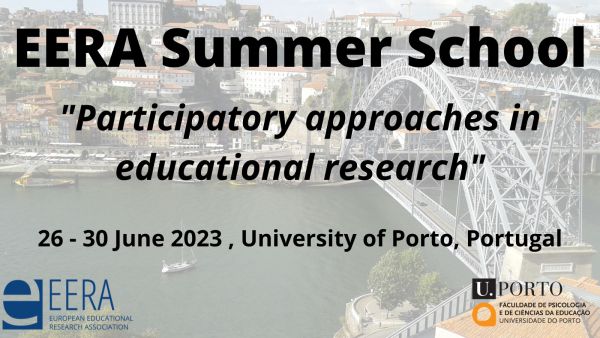
The EERA Summer School will be held on the 26 – 30 of June in 2023. The EERA Summer School 2023 “Participatory approaches in educational research” aims to support doctoral students interested in bringing participants’ voices and actions to the core of educational research. This implies a diversification of research methods, but also a careful consideration of the ethics of research, and a continuous critical vigilance over the power of educational research and researchers.
The Summer School will create spaces to share, discuss and debate, allowing emerging researchers to interact with each other and with more experienced researchers, taking their own ideas as the point of departure for collaborative joint learning regarding the practices, the problems, and the challenges of participatory research-in-the-making. Tutors will include members from the four research centers – CIIE, CIEd, CIDTFF and CEAD – as well as international researchers who will share their expertise and experiences on a wide range of educational and social issues across all education sectors, from early years to higher education and adult education.
Applications
15 November 2022 – 31 January 2023
Aplication links. http://ow.ly/4ABT50LATAF
https://www.conftool.net/eerss2023/
Information on acceptance
1 March 2023
Registration/Payment
2 March – 15 April 2023
Summer School
26 – 30 June 2023
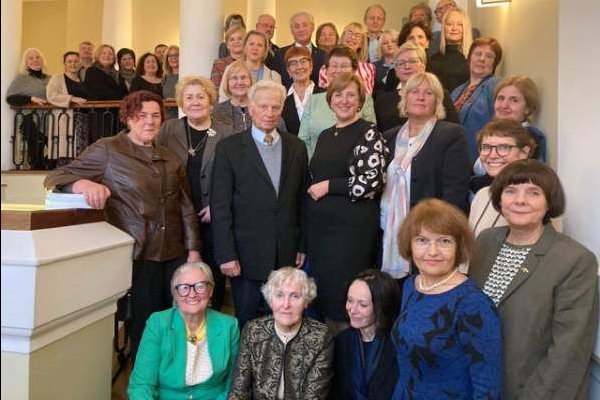
The Ministry of Education, Science and Sport and the Lithuanian Educational Research Association (LERA) organized an academic meeting “School: Learning From the Past to Create the Future”, in the College Hall of the Ministry of Education, Science and Sport. This meeting was dedicated to commemorate the 80th anniversary of a prominent personality of the Lithuanian educational community – professor, habilitated doctor of Social Sciences Marija Barkauskaitė. Habil. dr. Marija Barkauskaitė – a prominent Lithuanian educational scientist, one of the pioneers of educational reform. (the foto from https://www.svietimonaujienos.lt/akademiniai-susitikimai-asmenybe-kaip-jungtis-tarp-praeities-ir-ateities/).
She worked with her colleagues to develop strategic documents of Lithuanian Education reform, was actively involved in the implementation of education strategies, as the head of the Vilnius City Education Department, as the Vice-Minister of Education and Science, as the Chair of the Lithuanian Education Council, as the Vice-Rector of the Pedagogical University, as the Head of the Department, as the Chair of the Doctoral Committee, as the Editor-in-Chief of scientific journals, as the Head of international and national projects, and as the founder and member of non-governmental organisations. She has been awarded the Knight’s Cross of the Order of the Grand Duke Gediminas of Lithuania, the Honorary Badge of the Ministry of Education and Science for Merits in Education. She was awarded the St. Christopher’s Statuette “For Merits to Vilnius City”, Meilė Lukšienė Science Prize.
The Chancellor of the Ministry of Education, Science and Sport, Julius Lukošius, gave the opening greetings. On behalf of all the participants of the meeting, he congratulated prof. habil. dr. M. Barkauskaitė, all her colleagues and fellow teachers who had gathered to celebrate her most important works and scientific ideas, and to share their valuable insights. Introducing the first question of the discussion of the academic meeting – how was the diversity of schools created and what is needed now? – Loreta Žadeikaitė, PhD, Chief Advisor of the Department of Studies, Science and Technology of the Ministry of Education, emphasised that this topic was not chosen by chance: she recalled the insight of prof. habil. dr. M. Barkauskaitė about the necessity of diversity of schools, which she expressed many years ago. Jolanta Knyvienė, the principal of Vilnius Simonas Daukantas Gymnasium, one of the founders of the first university school in Lithuania, established in 1993, recalled the path of her school and the various reorganisations that had taken place.The floor was also given to prof. habil. dr. Marija Barkauskaitė, who emphasised the need for a variety of schools, summarising the experience she had gained during her years of pedagogical and scientific work and stressed that a teacher must have two things: a mind and a heart. Dr. Alvyra Galkienė, professor at the Academy of Education of Vytautas Magnus University, told about the first steps in the creation of an educational institution for children with disabilities, about the great attention she received from Prof. habil. dr. M. Barkauskaitė. Miša Jakobas, the director of the first Jewish school founded in 1992, praised prof. habil. dr. M. Barkauskaitė for her tolerance, her calmness, and for her encouragement. Dr. Auksė Petruškevičiūtė, President of the Association of Social Educators, lecturer at the Academy of Education of Vytautas Magnus University and Mykolas Romeris University, thanked prof. Barkauskaitė for fostering the culture of pedagogical interaction, which she has been exploring in both the scientific and practical fields.
Dr Agnė Brandišauskienė, Associate Lecturer at the Academy of Education of Vytautas Magnus University, said that she was proud of the fact that professor Barkauskaitė was one of her main teachers, who had led her from her undergraduate studies to the degree of Doctor of Science and to her further work in the higher education institution. Dr. Eglė Pranckūnienė, Founder and Director of the Public Institution School Improvement Centre, delved deeper into the thoughts of prof. habil. dr. M. Barkauskaitė on the training of teachers. Prof. habil dr. Palmira Jucevičienė, long-time President of the Lithuanian Educational Research Association, professor of the Institute of Social Sciences, Humanities and Arts at Kaunas University of Technology, praised prof.habil. dr. M. Barkauskaitė for her tolerance and highlighted her significant contribution to Educational Science. The words of congratulations to prof. Barkauskaitė were also read out by the historian, habilitated doctor of humanities Ingė Lukšaitė, daughter of the famous educator and founder of the national school Meilė Lukšienė.
Gabrielė Juodkaitė-Granskienė, the daughter of the professor and a judge of the Supreme Court of Lithuania, thanked the participants of the academic meeting. Prof. Liuda Rupšienė, President of the Lithuanian Educational Research Association, who summed up the discussion of the academic meeting, also expressed her gratitude to prof. M. Barkakauskasienė for the long-standing work and the strongest educationalists of the country she has educated. Ričardas Ališauskas, Head of the Strategic Planning Division of the Ministry of Education, Science and Sport, welcomed prof. dr. Barkauskaitė’s enormous influence on education.
The event was moderated by prof. dr. Loreta Žadeikaitė, Chief Advisor of the Department of Studies, Science and Technology of the Ministry of Education and Science, and dr. Daiva Penkauskienė,
For more information: https://www.svietimonaujienos.lt/akademiniai-susitikimai-asmenybe-kaip-jungtis-tarp-praeities-ir-ateities/
A recording of the event can be viewed here: https://www.lera.lt/leta_files/2022/11/smsm_irasas.mp4
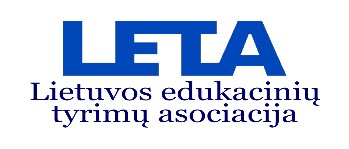
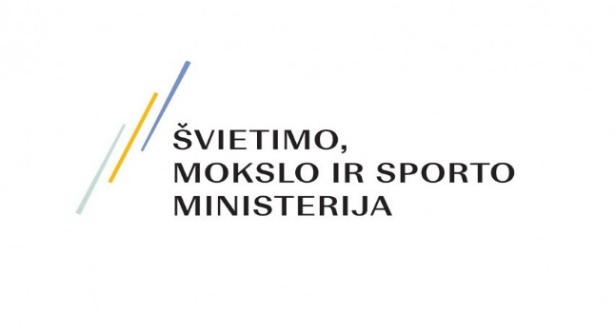
We are kindly invite representatives of educational sciences, researchers, PhD students, general education school administrators and community representatives, education policy makers, and all those who are interested in education policy, changes in general education and education research.
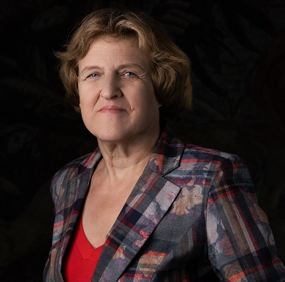
© Photographer E. Kurauskas
Key – note speaker prof. dr. Valentina Dagienė
Prof. Dr. Valentina Dagienė is a Chief Researcher at the Faculties of Philosophy, Mathematics and Informatics of Vilnius University, Head of the Educational Systems Group at the Institute for Data Science and Digital Technologies. She is a researcher in the field of computer science, computer engineering and educational sciences, has trained 16 PhD students, organises research, expert and practical educational activities, actively participates in the development and updating of the general education curricula of computer science and information technologies. She has published more than 300 scientific articles on informatics education, over 60 educational books and textbooks, several dictionaries and monographs on computing.
V. Dagienė founded and manages two international journals, Informatics in Education (since 2002) and Olympiads in Informatics (since 2007), both of which are included in Scopus, and since 2016 Informatics in Education has been included in the Web of Science Emergence list. She is co-editor of various international scientific publications. V. Dagienė has designed and implemented a model for the development of computational thinking – the computer science challenge “Beaver”, which is used in more than 70 countries: research is conducted, data is collected, and several hundred scientific publications are published (https://www.bebras.org/publications.html). In 2015, Beaver was voted the best educational model by the international organisation Informatics-Europe. V. Dagienė has coordinated and implemented more than 50 international and national projects, and organised more than two dozen international conferences. She is one of the initiators of the National Olympiads for Computer Science. For many years she worked in the International Coordinating Committee of the Computer Science Olympiads. In 2022, she was awarded the Outstanding Contribution Award for her contribution to the International Computer Science Olympiads. Professor Dagienė’s work has been recognised by Lithuanian State and international awards – in 2016, she was awarded the Knight’s Cross of the Order of the Grand Duke Gediminas of Lithuania and the European Commission’s Ada Lavleis Diploma of Excellence in Informatics for her services to informatics science. This year she was awarded the REX Cup of the M. K. Čiurlionis Foundation.
| Date | 24 th of November, 2022 |
| Time | 3.00-5.00 p.m. |
| Connecting links |
https://zoom.us/j/6289736970 ( live broadcast) |
| Moderators | doc.dr. Berita Simonaitienė, Associate Professor, Faculty of Social Sciences, Humanities and Arts, Kaunas University of Technology dr. Vaino Brazdeikis, Director of the Educational Content Department of the National Education Agency |
| Forum Programme | |
| Key- note | Theme “Informative Thinking on the Road to Digital Transformation: How not to Get Lost?” prof. dr. Valentina Dagienė, chief researcher at Vilnius University’s faculties of Philosophy, Mathematics and Informatics |
| Discussion |
Participants of the discussion: Prof. Indrė Šuolienė, Head of the project “Digital Transformation of Education (“EdTech”)” |
| Conclusion | prof. dr. Liudmila Rupšienė, President of the Lithuanian Educational Research Association prof. dr. Loreta Žadeikaitė, Chief Advisor of the Department of Studies, Science and Technology of the Ministry of Education, Science and Sport. |
| Contact information: | e-mail: [email protected], tel. 8 686 39 529; e-mail: [email protected], tel. 8 686 21 364 |
During the Forum, videos and photographs will be taken and digital information will be uploaded to the LERA website.
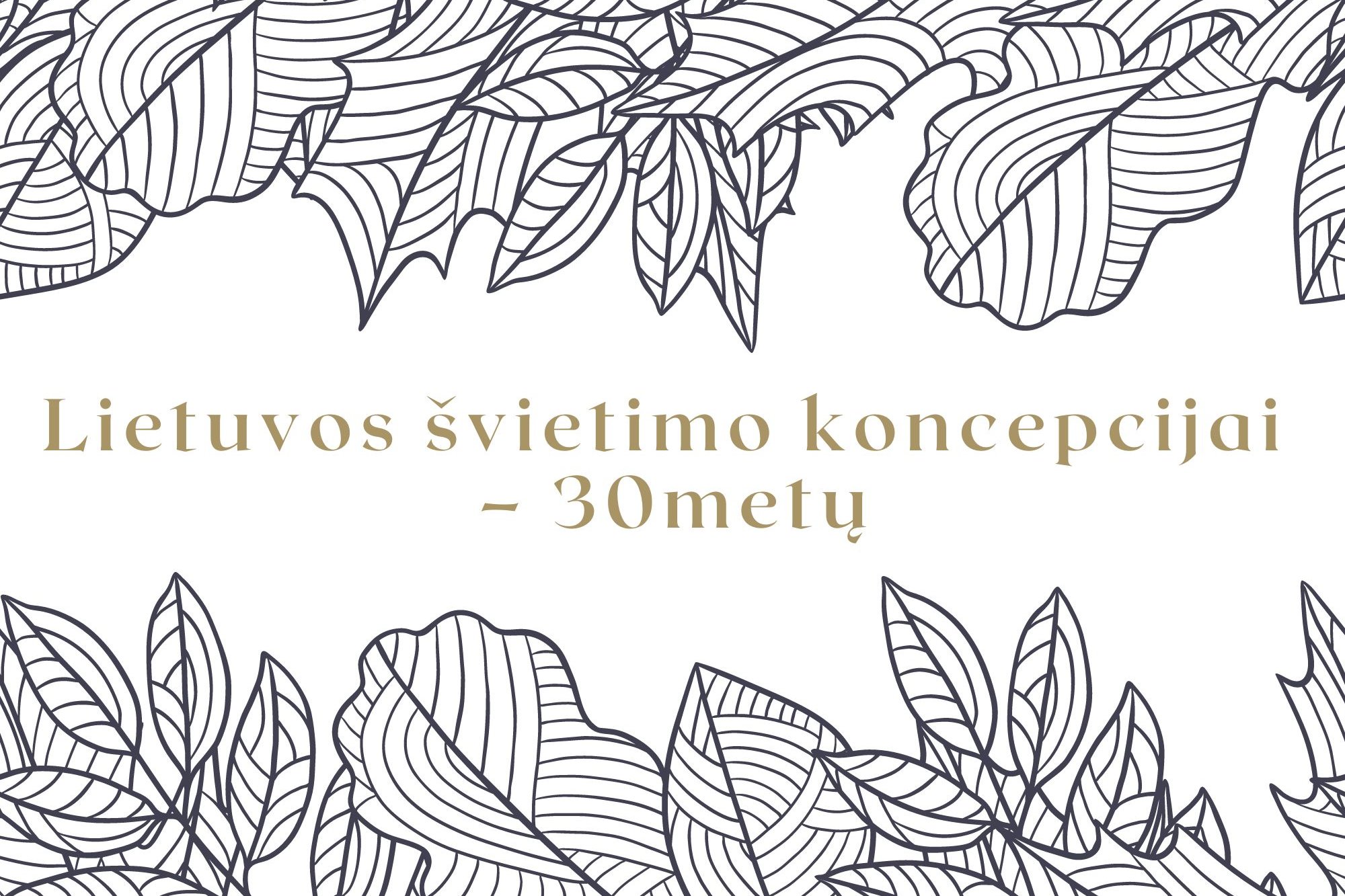
We are kindly invite you to an event on 25th of November in 2022 at 15.30 to celebrate the 30th anniversary of the Lithuanian Concept of Education. Together, we will remember the history of the document, the people who drafted it, the main ideas behind it, and discuss its significance for the present and future.
Registration: until 23 November 2022 https://forms.gle/FgSgQcHz8rgCkaiz7
Programme: https://sdcentras.lt/lietuvos-svietimo-koncepcijai-30-metu/
On the 26th of November in 1992 The Minister of Culture and Education of the Republic of Lithuania, Darius Kuolys, signed an order on the submission of the Conception of Lithuanian Education “For Public Information and For the Approval of the Government of the Republic of Lithuania and the of the Republic of Lithuania”. The Conception defined education as “a set of historically formed purposeful activities and organisational structures, the purpose of which is to achieve the goals of education of the individual and society”. It formulated objectives and principles common to the entire education system. Despite the fact that the conception was not approved by the then Parliament, this document laid a solid foundation for the Lithuanian education reform work. Not only was it highly acclaimed internationally, but, more importantly, it became a vision that ideologically mobilised the education community for further reform.
Organisers: the Centre for School Improvement, the Centre for Contemporary Didactics.
Partners: Lithuanian Educational Research Association, Creation Group of the State Progress Strategy Lithuania-2050.

Congratulations to the new PhD Martynas Maniušis on successfully defending doctoral thesis “Development of Historical Literacy of Schoolchildren when Working with Historical Sources in the Third Concentrs of General Education (Educational Science (S 007), scientific supervisor doc. dr. Aušra Žemgulienė)” and obtaining PhD degree of Social Sciences in the field of Education.
The dissertation is available at Vytautas Magnus University, Klaipėda University, Mykolas Romeris University, Vilnius University and Martynas Mažvydas National Library. The dissertation is available at 11 Studentų St. , ACademy, Kaunas district.
The brief annotation of dissertation is presented below.
The main question of the dissertation is how to develop the historical literacy of Lithuanian schoolchildren by working with historical sources in the third grade and how to assess its growth. At the theoretical level, based on the works of Lithuanian and foreign authors and the analysis of Lithuanian curriculum documents, the concept of historical literacy development in the third concentrs of general education is developed. It has been established that the basis of historical literacy consists of the development of critical thinking (including critical literacy), historical reasoning and historical research skills, the growth of which is assessed by the use of secondary historical concepts. It was found that the correlation between the growth in levels of historical cognition, the growth in the ability to work with historical sources as evidence, and the growth in the secondary concepts of history, enables the determination of the level of historical literacy achieved by the schoolchildren at the third concentrs of the basic education level. The pedagogical diagnostic study justifies the six-level growth model for the development and assessment of the ability to work with historical sources and its effectiveness in assessing the ability of Grade 9 students to work with historical sources as evidence.
Dissertation Defense Council:
Chair – prof. Dr. Daiva Jakavonytė Staškuvienė (Vytautas Magnus University, Social Sciences, Education S 007)
assoc. prof. Dr. Rita Mičiulienė (Vytautas Magnus University, Social Sciences, Education S 007)
prof. Dr. Juozas Skirius (Vytautas Magnus University, Humanities, History H 005)
assoc. prof. dr. Irena Stonkuvienė (Vilnius University, Social Sciences, Education S 007)
prof. dr Iveta Kestere (University of Latvia, Social Sciences, Education S 007).

Congratulations to LERA vice – president, professor Jolanta Urbanovič of Mykolas Romeris University on becoming an advisor to the President of Lithuania, Gitanas Nauseda. J. Urbanovič is Professor at the Institute of Public Administration, Mykolas Romeris University, and Head of the Master’s Programme in Education and Science Policy and Management. In 2019-2020, she was Deputy Minister of Education, Science and Sport. She holds a Master’s degree in Lithuanian Linguistics from Vilnius University and a Master’s degree in Public Administration from Mykolas Romeris University. In 2011, J. Urbanovič obtained her PhD in Social Sciences, defending her dissertation “A Model of School Autonomy Management”.
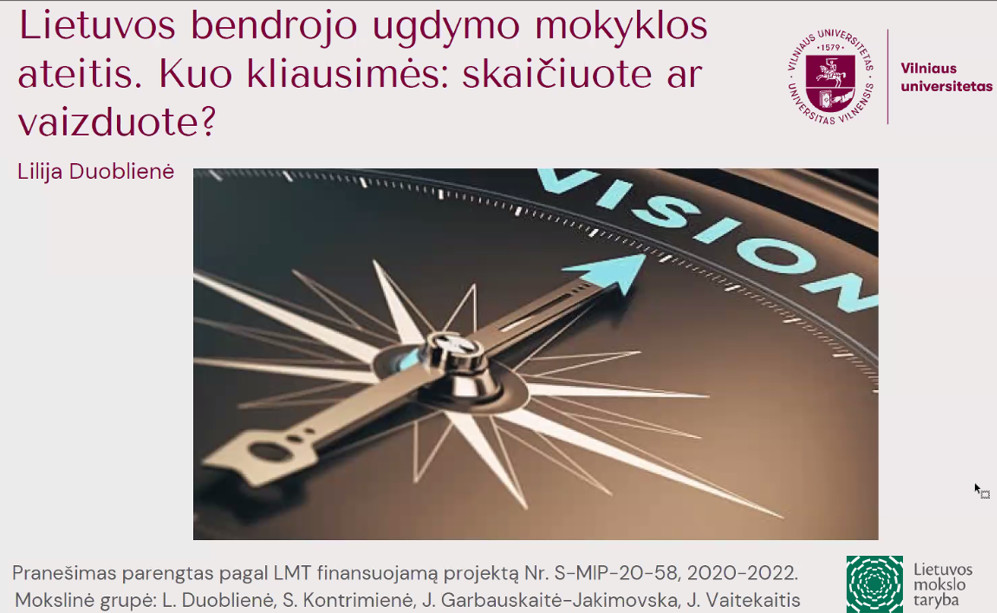
On the 27 th of October in 2022. The 18th Education Forum ”The Future of the Lithuanian General Education School. What Will We Count: Do We Calculate or Imagine?” took place. What will We count : Do We Calculate or Imagine?”. About 50 participants took part in the forum. Keynote speech “The Future of the Lithuanian General Education School. What Will We Count: Do We Calculate or Imagine?” was presented by prof. dr. Lilija Duoblienė, professor of the Institute of Educational Sciences, Faculty of Philosophy, Vilnius University. The report was prepared under the LMT-funded project “Futuristic Projections of General Education School” (No. S-MIP-20-58, 2020-2022). Scientific group: L. Duoblienė (head), S. Kontrimienė, J. Garbauskaitė-Jakimovska, J. Vaitekaitis.
The discussion was attended by dr. Lina Bairašauskienė (Director of Vilnius Maironis Secondary School), dr. Nerija Putinaitė (assistant professor, Institute of International Relations and Political Sciences, Vilnius University), prof. dr Natalija Mažeikienė (Professor of the Social Work Department of Vytautas Magnus University), Alvydas Puodžiukas (Head of the School Activities Department of the Education Quality and Regional Policy Department of the Ministry of Education, Science and Sport of the Republic of Lithuania) Unė Kaunaitė (Director of the Vilnius Education Progress Center). The conclusion was given by prof. dr. Liudmila Rupšienė (President of the Lithuanian Educational Research Association), prof. dr. Loreta Žadeikaitė (Chief Advisor of the Department of Studies, Science and Technology of ŠMSM). The forum was moderated by assoc. prof. Irena Stonkuvienė (assistant professor, Institute of Educational Sciences, Faculty of Philosophy, Vilnius University) and Ričardas Ališauskas (head of the Strategic Planning Department of the Ministry of Education, Science and Sport of the Republic of Lithuania), Ažuolas Jašinskas (Primary school teacher of the Raudondvaris Anele and Augustinas Kriauzai primary school, Kaunas district). The forum recording available at the YouTube platform : https://www.youtube.com/watch?v=RSDZRTEvGD0

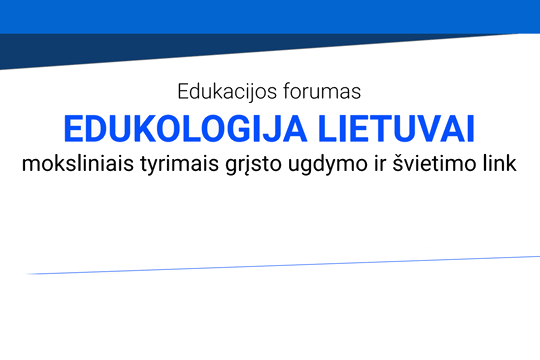

XVIII EDUCATION FORUM “The Future of the Lithuanian General Education School. What Shall We Count: Do We Calculate or Imagine?”
We are kindly invite representatives of educational sciences, researchers, doctoral students, heads of general education schools and community representatives, educational policy makers, everyone who is interested in changes in education policy, general education and education research to participate.
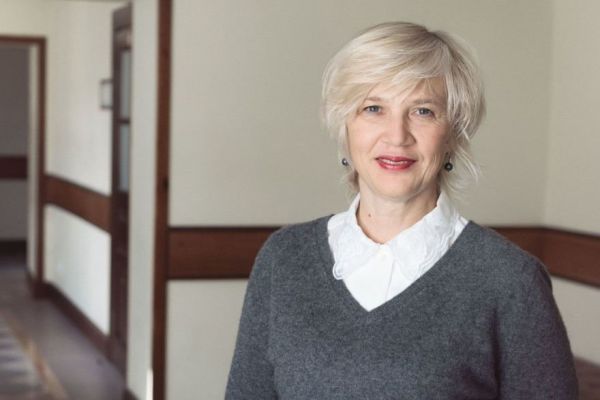
About the main presenter
Professor Lilija Duoblienė is a professor at the Faculty of Philosophy of Vilnius University. She heads the Department of Educational Theory and Culture of the Institute of Educational Sciences. The professor’s field of research includes educational philosophy and ideology, cultural innovations and cultural encounters in education, and her research is based on critical pedagogy, postmodernism and posthumanism. approaches.
Lilija Duoblienė has led many national research groups on the topic of educational culture and cultural transmission (2010, 2014-2015), participated in the national research project “Multimodal education: philosophical approaches and problems”, as well as in the DIALLS project dedicated to international dialogue and cultural literacy (“Horizontas 2020 “), is currently leading the scientific group project “Futuristic Projections of the Lithuanian General Education School” (2020-2022). The professor is the author of many articles and several monographs, including “Ideologized Territories of Educational Change” (2011), “Posthumanist Education. Decode” (2018), “Multimodal Education: Philosophy and Practice” (co-author, 2021).
Lilija Duoblienė has led many national research groups on the topic of educational culture and cultural transmission (2010, 2014-2015), participated in the national research project “Multimodal education: philosophical approaches and problems”, as well as in the DIALLS project dedicated to international dialogue and cultural literacy (“Horizontas 2020 “), is currently leading the scientific group project “Futuristic Projections of the Lithuanian General Education School” (2020-2022). The professor is the author of many articles and several monographs, including “Ideologized Territories of Educational Change” (2011), “Posthumanist Education. Decode” (2018), “Multimodal Education: Philosophy and Practice” (co-author, 2021).
| Date | October 27, 2022 |
| Time | 3.00–5.00 p.m. |
| Connecting links | College Hall https://zoom.us/j/6289736970 (live translation) https://www.youtube.com/channel/UCHxFzyS1l3eAxn-gXT4BHbQ |
| Moderators | assoc. prof. Irena Stonkuvienė, Institute of Educational Sciences, Faculty of Philosophy, Vilnius University Ričardas Ališauskas, Head of the Strategic Planning Department of the Ministry of Education, Science and Sports of the Republic of Lithuania |
| Forum programme (project) | |
| Key – note | Topic “The Future of the Lithuanian General Education School. What Will We Count : Do We Calculate or Imagine?” Prof. dr. Lilija Duoblienė, professor of the Institute of Educational Sciences, Faculty of Philosophy, Vilnius University. The report was prepared under the LMT-funded project “Futuristic Projections of General Education School” (No. S-MIP-20-58, 2020-2022). Scientific group: L. Duoblienė (head), S. Kontrimienė, J. Garbauskaitė-Jakimovska, J. Vaitekaitis |
| Discussion |
Participants of the discussion dr. Lina Bairašauskienė, director of Vilnius Maironis secondary school |
| Conclusion | prof. dr. Liudmila Rupšienė, President of the Lithuanian Educational Research Association prof. dr. Loreta Žadeikaitė, Chief Advisor of the Department of Studies, Science and Technology of the Ministry of Science, Education and Sport. |
| Contact information | email: [email protected], tel. 8,686,39,529; email: [email protected], tel. 8,686,21,364. |
More information about the project:
The project envisages studying the change of the general education school not by diagnosing past changes, but by projecting future changes. The research aims to grasp the insights already potentially projected into the future in the field of education, raising questions: where will the Lithuanian general education school turn, to what extent will it follow the existing trajectories of other countries, and to what extent will it choose a unique way depending on the socio-cultural context of the country? The project analyzes EU and Lithuanian education strategic documents, as well as insights into futuristic considerations in academic discourse. Logical puzzles of scenarios are constructed, the drawing of maps of the school’s future is organized, and on the other hand, the insights of education participants and experts, separated from the imagination of logical sequences, are designed. The project includes theoretical (scientific literature, documents) and empirical research of school participants and education experts (unstructured expert interviews; Delphi questionnaire survey, focus group research of students, teachers, school leaders and researchers), based on which future scenarios and/or a map of projections and an analysis of the possibilities of their fulfillment. The future scenarios of the school are analyzed from several aspects: 1) the influence of the socio-cultural context and information technologies, 2) the structuring of school space and time, 3) the content of education, 4) the integration of non-formal education, 5) the functions of education participants and their real and virtual communication, 6) global in terms of risks: climate change, pandemic, war.
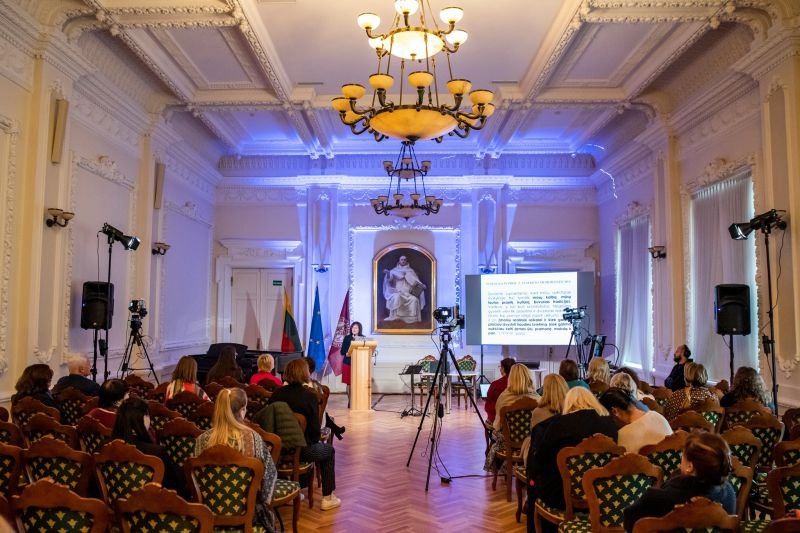
On the 13 – 14 th of October 2022, the 6th LERA Lithuanian Educational Research Association (LERA) Scientific Conference EDUCATIONAL PRACTICE AND RESEARCH IN THE TURBULENT WORLD was held to celebrate the 100th anniversary of the Lithuanian University. The welcoming speech was given by prof. dr. Liudmila Rupšienė, President of LERA, prof. dr. Lina Kaminskienė, Chancellor of the Academy of Education of VMU, and the Minister of Education, Science and Sports, dr. Jurgita Šiugždinienė, joined the greetings
Plenary presentations were held in three sections. In the first section, “Unpredictable Futures and the Change of Education and Training“, presentations were given by prof. habil. dr. Palmira Jucevičienė (KTU), “Challenges of Unpredictable and Unpredictable Futures for Education and Training”, and prof. dr. Peter Rado (Central European University), “Educating for Uncertainties?”. The session was moderated by prof. dr. Jolanta Urbanovič (MRU), dr. Eglė Pranckūnienė (School Improvement Centre). In the second section “FROM PRESENT EDUCATION CONCERNS TO FUTURE PREDICTIONS”, presentations were given by Ričardas Ališauskas (Head of the Strategic Planning Department of the Ministry of Education and Science of the Republic of Lithuania) “On Education Concerns”, prof. dr. Lilija Duoblienė (Vilnius University of Technology) “What kind of Lithuanian schools do we expect in 2050 and what is the value of futuristic predictions”. In the third section “VALUES IN EDUCATION PRACTICE AND RESEARCH: OBJECTIVES AND THEIR CHANGE IN THE CONDITIONS OF CRITICAL SOCIAL TRANSFORMATIONS”, presentations were given by prof. dr. Irena Leliūgienė (MRU) “The Aspirations of the Education of Values and Ideals in the Public Speeches of the Rectors of the University of Lithuania in the Conditions of Military Threats and Political Conflicts in the Country in 1922-1940″. prof. dr. Natalija Mažeikienė (MRU) “Integration of the Gender Dimension in the Research of Educational Sciences”. The session was moderated by prof. dr. Lilija Duoblienė (VU) and prof. dr. Aušra Kazlauskienė (VU ŠA). The contact conference was attended by about 100 participants, the plenary presentations were streamed live on Youtube channel https://youtu.be/r0uKQdNNQxU. The session was funded by the Research Council of Lithuania Plenary presentations can be viewed at any time.
The second day of presentations was held remotely via 17 networks, i.e. The network was hosted by the Early Education and Vocational Training Network, the General Education Network, the Pre-school Education Network, the Arts Education Network, the Lifelong Learning Network, the Professional Development of Teachers Network, the Teacher Training Network, the Primary Education Network, the Social Education Network, and the Sports Education Network, Social Sexuality and Education Network, Health and Well-being Network, Educational Management and Leadership Network, Research Methodology Network, Educational Philosophy and Education Policy Network, History of Education and Education Network, Inclusive Education Network, and the Education Researchers Emeritus Network. Around 150 presentations were given, research findings were shared and discussions were held. This LERA conference strengthened the cooperation between all those who are close to scientific ideas in education, research, practice, etc.


The conference final programme has been published. The deadline for participant registration for the conference has been extended until 12 th of October without announcement (inclusive).
“EDUCATIONAL PRACTICE AND RESEARCH IN A TURBULENT WORLD”
Dedicated to the 100th anniversary of the University of Lithuania
The 6th Lithuanian Educational Research Association (LERA) Conference organised by the Lithuanian Educational Research Association (LERA) and Vytautas Magnus University Academy of Education
13 – 14 October 2022
We invite you to participate in the 6th Lithuanian Educational Research Association (LERA) Conference “Educational Practice and Research in a Turbulent World” organised by the Lithuanian Educational Research Association (LERA) and the Academy of Education of Vytautas Magnus University.
Technology-driven change has become a part of the world’s daily routine, but climate change, COVID, and military aggression in Europe have shown that the world has to cope with a multitude of simultaneous challenges and crisis situations. What must education be, how must it intersect with the lives of individuals, communities and organisations in order to help people, and especially the younger generation, to become individuals capable of living and working in a rapidly changing world? Human learning is more than cognitive or academic development. Learning is a complex phenomenon and goes hand in hand with social, emotional and psychological development and the formation of personal identity. Learners’ identities interact with a range of factors that include the context of the educational institution, racial, geographical, gender, socio-economic aspects, and different ways of knowing, communicating, valuing, thinking, speaking and writing. Teachers are an important focus of this theme, trying to answer how teachers develop a personal and professional identity that is shaped by their qualifications, experience, professional learning, school context and personal and professional goals. How should this younger generation be educated so that children and young people develop an identity based on values? What are the challenges for educators and the school to inspire such education? How to enable lifelong learning, so necessary for people in a turbulent world? Are Lithuanian universities developing individuals who take responsibility for the future of Lithuania? What are the challenges for educational researchers?
LERA 2022 conference programme:
LERA 2022 the first day
https://lera.lt/wp-content/uploads/2022/10/LETA-2022-konferencijos-1-dienos-programa_galutine.docx
LERA 2022 the second day_ final programme
https://lera.lt/wp-content/uploads/2022/10/LETA2022antradienagalutine3.docx
LERA 2022 the second day Emeritus Network
https://lera.lt/wp-content/uploads/2022/10/LETA-2022-antroji-diena_-emeritu-tinklas-1.pdf
The conference will take place from 13 to 14 October 2022. The first day (13 October) will be held in a contact room at Vytautas Magnus University (7 Gimnazijos St., Kaunas, Great Hall -203), but video recordings will be made and uploaded to https://lera.lt after the conference. The second day of the conference will be held remotely. The first day of the conference will consist of plenary invited announcements and the second day of the conference will consist of breakout sessions of oral and poster presentations.
You can register for the conference with a paper until 26th of September 2022 (extended until 1st of October) and for the conference without a paper until 5th of October 2022 (extended until 12th of October) by following this link:
Registration
The Conference Fee:
| LERA members: for participation on the 1st day of the conference only – 30 euros on the 2nd day of the conference only – 20 euros for both days of the conference – 50 euros |
NOT members: for attending the 1st day of the conference only – 40 euros for the 2nd day of the conference only – 30 euros for both days of the conference – 70 euros |
CONFERENCE ORGANISING AND SCIENTIFIC COMMITTEE
| Chair of the Committee | President of the Lithuanian Educational Research Association (LERA) Prof. Dr. Liudmila Rupšienė |
| Vice-Chair of the Committee | prof. dr. Lina Kaminskienė |
| Committee members – LERA board members | prof. dr. Liudmila Rupšienė (Klaipėda University), prof. habil. dr. Palmira Jucevičienė (Kaunas University of Technology), prof. dr. Jolanta Urbanovič (Educational Research and Innovation Institute, Mykolas Romeris University), prof. dr. Arūnas Emeljanovas (Lithuanian University of Sport), doc. dr. Daiva Penkauskienė (Centre for Contemporary Didactics), prof. dr. Aušra Kazlauskienė (Šiauliai Academy of Vilnius University), doc. dr. Irena Stonkuvienė (Vilnius University), prof. dr. Lilija Duoblienė (Vilnius University), assoc. prof. r. Rita Makarskaitė-Petkevičienė (Vilnius University), prof. dr. Odeta Merfeldaitė (Mykolas Romeris University), prof. dr. Rūta Girdzijauskienė (Klaipėda University), prof. dr. Alvyra Galkienė (Vytautas Magnus University), dr. Auksė Petruškevičiūtė (Lithuanian Association of Social Educators, Vytautas Magnus University), dr. Eglė Pranckūnienė (Public Institution School Improvement Centre), PhD student Vaiva Juškienė (Vilnius College), prof. dr. Lina Kaminskienė (Vytautas Magnus University), prof. dr. Rita Aleknaitė-Bieliauskienė (Mykolas Romeris University), prof. dr. Raimonda Brunevičiūtė (Lithuanian University of Health Sciences), doc. dr. Vaiva Jucevičiūtė-Bartkeviciene (Vytautas Magnus University), prof. Dr. Daiva Jakavonytė-Staškuvienė (Vytautas Magnus University), dr. Lina Bairašauskienė (Mykolas Romeris University), dr. Aelita Skarbalienė (Klaipėda University), dr. Milda Ratkevičienė (Klaipėda University, Kaunas University of Technology). |
| Members of the Scientific and Organising Committee of the Conference |
Vytautas Magnus University researchers: prof. dr. Lina Kaminskienė, prof. dr. Vilma Žydžiūnaitė, dr. Vaida Jurgilė, Lina Šedbarė, PhD student Jovita Matulaitienė. |
|
Committee Contacts
|
Prof. dr. Liudmila Rupšienė, e-mail: [email protected] Prof. dr. Lina Kaminskienė, e-mail: [email protected] Prof. dr. Vilma Žydžiūnaitė, e-mail: [email protected] Lect. dr. Vaida Jurgilė, e-mail: [email protected] |
Note: During the conference, photographs and videos will be taken and posted on LERA website https;//lera.lt and other LERA distribution channels.
Details for payment
Recipient: Lithuanian Educational Research Association
Recipient’s account: LT44 7044 0600 0331 9616
AB SEB bank
Purpose of payment: for LERA 2022 conference – for the 1st day
for LERA 2022 conference – for the 2nd day
for LERA 2022 conference – for both days
If you need an invoice from LERA, contact Milda Ratkevičienė by e-mai: [email protected]
Conference Venue: 7 Gimnazijos Str., Kaunas, Great Hall-203
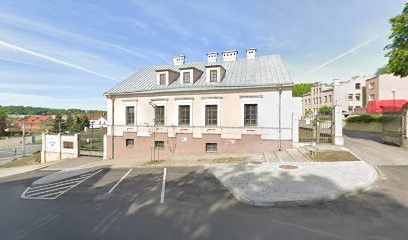

Life is made up of big and small events that add variety to everyday life and measure the journey of life. They are both funny and sad, necessary and unnecessary, meaningful and not meaningful in the long term. But it is only through these that we learn the price of life and what it is. On the occasion of your professional day, we congratulate you and wish you not to tire in the struggle of life, not to lose heart in the face of difficulties, and to share your discoveries with Love and Faith.
LERA Team

Congratulations to dr. Irma Lubertienė after successfully defending her doctoral thesis Educational Factors that Create Children’s well-Being at School: the Voice of teachers (Education, S 007, scientific supervisor – assoc. prof. Sergejus Neifachas) and after obtaining a PhD in Social Sciences in the field of Education.
The annotation of the dissertation is presented below.
In the doctoral dissertation “Educational Factors Creating Children’s Well-Being at School: the Voice of Teachers” the concept of children’s well-being and the modeling of the contexts of its expression in school are explored. The description of the concepts of well-being and the reconstruction of meanings in the discourse of scientific approaches are analyzed: the development of the concept of well-being from the point of view of health sciences is explored; revealed the concept of well-being in psychology; defined concept of well-being in the perspective of educational sciences. The components of children’s well-being that determine social educational processes at school are also discussed, the content and expression contexts of educational factors that create children’s well-being at school are modeled, and a theoretical-empirical model of creating children’s well-being at school is compiled. A study of educational factors and their relationship with children’s well-being at school was conducted from the point of view of teachers of general education schools (sample N = 514). The object of research is the relationship between educational factors and elements of children’s well-being. The research used a survey questionnaire based on the theoretical approach of the model of children’s well-being at school, applying three instruments measuring educational factors and one instrument assessing children’s well-being at school (teacher survey). The questionnaire was made up of 4 diagnostic blocks that reveal the constructs of teachers’ personal well-being, school community well-being, development of skills relevant to children’s well-being, and children’s well-being in the eyes of teachers. Research methods: systematic analysis, synthesis, interpretation and evaluation of scientific literature; quantitative survey and statistical data analysis. The study reveals a model for predicting the development of children’s well-being at school from the perspective of educational factors.
Dissertation Defense Council:
Chair – prof. habil. dr. Vilma Žydžiūnaitė (Vytautas Magnus University, Social sciences, Education, S 007)
prof. dr. Ona Monkevičienė (Vytautas Magnus University, Social Sciences, Education, S 007)
prof. dr. Romas Prakapas (Mykolas Romeris University, Social Sciences, Education, S 007)
prof. dr. Rita Vaičekauskaitė (University of Klaipėda, Social Sciences, Education, S 007)
assoc. prof. Aušra Rutkienė (Vytautas Magnus University, Social Sciences, Education, S 007).
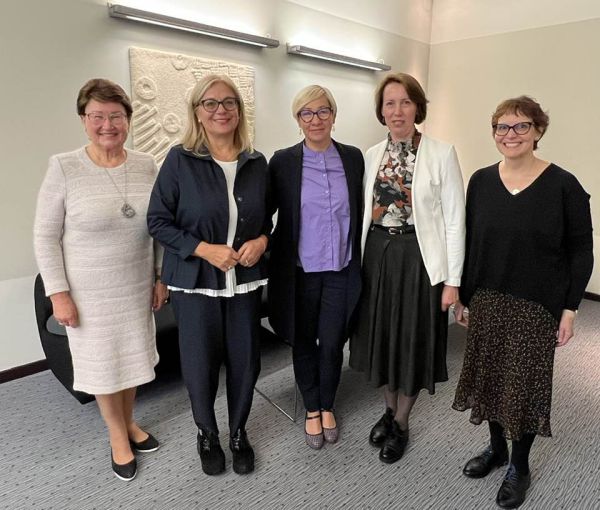
On the 21 th of September LERA president prof. dr. Liudmila Rupšienė, together with the first LERA president prof. habil. dr. Palmira Jucevičienė and LERA vice-presidents prof. dr. Jolanta Urbanovič and dr. Egle Pranckūnienė, participated in a meeting with the Minister of the Ministry of Education, Science and Sports dr. Jurgita Šiugždinienė. In a warm and constructive discussion, it was decided to consolidate the cooperation between the Ministry of Education, Science and Sports and LERA in a contract, which is being prepared.
If you have ideas for cooperation, please share them. It would be especially good if you discuss them in the networks. National educational research associations construct their identities in different ways and choose different paths of communication with ministries of education. We want to collaborate and contribute through our research to the improvement of education and educational practice and to the public good. We are happy to have the minister’s approval and support!
On 22 th of September in 2022, 4.00 p.m. -5.30 p.m. , we kindly invite you to the remote webinar “ Problematics of Personal Life and Career in Doctoral Studies”. The aim of this seminar is to get a closer look at the challenges of balancing personal life and career for PhD students and to provide a space to share tips on how to plan your time more effectively.
This seminar will be led by prof. Natalija Mažeikienė (SPEAR Project Researcher, Professor at the Faculty of Social Sciences) and Ph. Laura Lapinskė (Equal Opportunities Coordinator, Project SPEAR Researcher, Lecturer at the Faculty of Social Sciences). The lecturers invite PhD students to discuss together the concept of work-life balance, to share good practices, to identify and recognise barriers, to talk about the possibility of combining work-life activities, family commitments and professional activities. The seminar will present theoretical insights and practical strategies for time management, productive writing and resource allocation. The training will use interactive tools to engage participants in discussions and group activities.
More about the workshop: https://lera.lt/wp-content/uploads/2022/09/Seminaras-doktorantams-ir-doktorantems.pdf
Registration link for the workshop: https://mokymosiakademija.vdu.lt/mokymai/studijos/144
